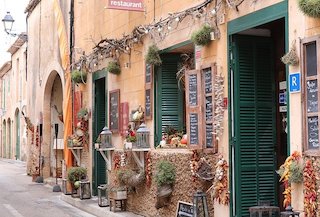A
A : Will you call me tomorrow?
B : Yes, I’ll call you when I get home from work.
-—————————–
“I’ll call you when I get home from work” is a sentence with two pats:
the main part: I'll call you
and the when part: when I get home from work
The time in the sentence is when part of the sentence.
We do not use will in the when part of the sentence.
-—————————–
Some more examples:
We’ll go out when it stops raining. (not when it will stop)
When you are in Los Angeles again. give us a call. (not When you will be)
(said to a child) What do you want to be when you grow up? (not will grow)
The same thing happens after while / before / after / as soon as / until or till:
I’m going to read a lot of books while I’m on vacation. (not while I will be.)
I’ll probably go back home on Sunday. Before I go, I’d like to visit a museum.
Wait here until (or till) I come back.
B
You can also use the present perfect (have done) after when / after / until / as soon as:
Can I borrow that book when you’ve finished it?
Don’t say anything while Ben is here. Wait until he has gone.
If you use the present perfect. one thing must be complete before the other (so the two things do not happen together):
When I’ve called Kate, we can have dinner.
(= First I’ll call Kate, and after that we can have dinner.)
Do not use the present perfect if the two things happen together:
When I call Kate, I’ll ask her about the party. (not When I’ve called)
It is often possible to use either the simple present or the present perfect:
I’ll come as soon as I finish. or I’ll come as soon as I’ve finished.
You’ll feel better after you or You’ll feel better after you’ve
hve something to eat. had something to eat.
C
After if, we normally use the simple present (if I do / if I see, etc.) for the future:
It’s raining hard. We’ll get wet if we go out. (not if we will go)
I’ll be angry if it happens again. (not if it will happen)
Hurry up! If we don’t hurry, we’ll be late.
D
Compare when and if:
We use when for things that are sure to happen:
I’m going shopping later. (for sure) When I go shopping, I’ll get some cheese.
We use if (not when) for things that will possibly happen:
I might so shopping later. (it’s possible) If I go shopping, I’ll get some cheese.
If it is raining tonight, I won’t go out. (not When it is raining)
Don’t worry if I’m late tonight. (not when I’m late)
If they don’t come soon. I’m not going to wait. (not When they don’t come)



コメント